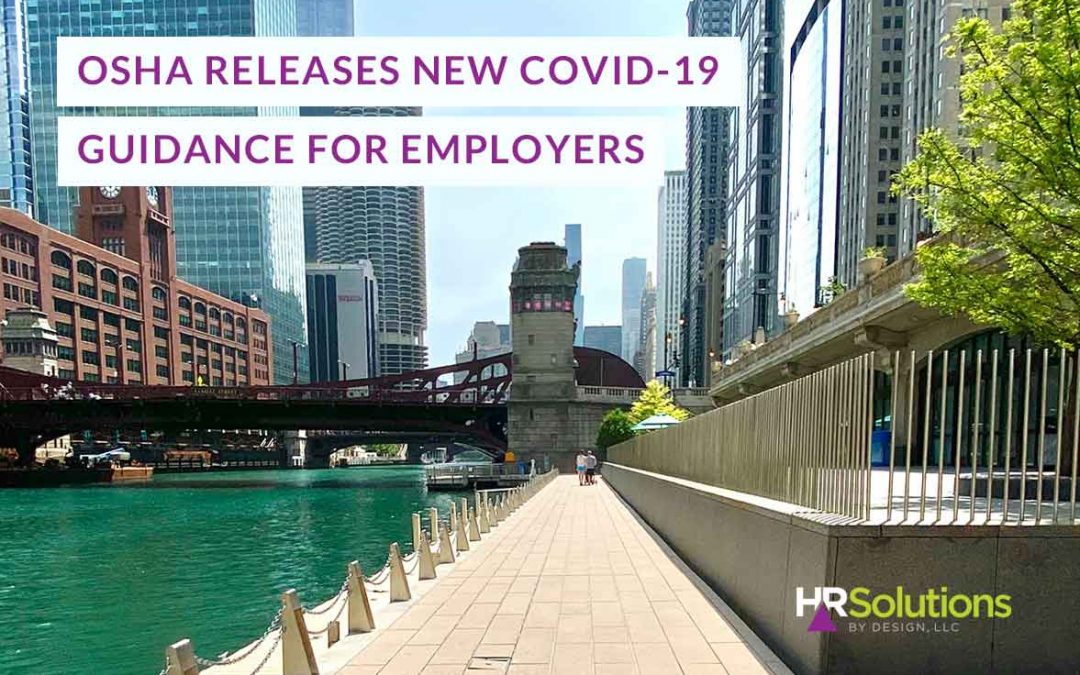The Occupational Safety and Health Administration (OSHA) has issued new enforcement guidelines for businesses attempting to reopen safely and provide for employee and customer safety in this era of COVID-19. OSHA’s guidance includes recommendations for investigating claims of workplace violations that may result in COVID-19 infections and supersedes the previous COVID-19 related guidance and went into effect on May 26, 2020.
The crucial question for you and your leadership teams, as it relates to worker’s compensation, is whether a case of COVID-19 is “work-related.” Under OSHA’s new guidance the biggest change is the obligation for non-healthcare employers to conduct a “reasonable and good faith inquiry” into whether “it is more likely than not” a COVID-19 case is work related.
The previous guidance outlined different paths for different industries; but the revised guidelines reaffirm the traditional OSHA “reasonableness standard” on all employers when determining compliance with OSHA record-keeping obligations.
Citing privacy concerns and the lack of medical expertise, OSHA noted that most employers, especially small businesses, are not generally expected to undertake extensive medical inquiries. Under this new guidance, employers should implement the following steps when they become aware of a COVID-19 case in their workplace:
- Conduct an incident investigation, talk to the infected employee and ask them how they think they may have been exposed as it relates to the CDC guidance.
- Discuss with the employee any activities they were engaged in, both inside and outside of work, that may have exposed them to the virus. (However, be careful to respect the employee’s personal privacy).
- Consider workplace activities and any potential situations that may have led to a COVID-19 exposure.
As you review your workplace, be sure to focus your attention on any other situations where employees contracted COVID-19 and the specific circumstances of those other cases.
When conducting an incident investigation of a possible work-related COVID-19 illness, we recommend you document the safety policies and procedures you’ve implemented and the steps you’re taking to enforce your COVID-19 guidelines including how you ensure adherence to the CDC and OSHA safety protocols, such as the use of face masks, social distancing, and disinfecting and sanitizing procedures.
Under the revised OSHA guidelines, as long as you can demonstrate your organization has made a reasonable and good faith effort to protect employees you do not need to record the illness as a recordable on the OSHA 300 as long as you have made a reasonable and good faith investigation of the illness but cannot determine whether it is more likely than not that the COVID-19 case is work related.
Please note, in their most recent revision OSHA also noted they plan to increase in-person inspections of workplaces, especially in areas where COVID-19 is most prevalent.
In a nut-shell: There are no substitutions for strong workplace policies and procedures and thorough post-incident investigations to determine if a COVID-19 infection is likely work-related. These new OSHA COVID-19 guidelines reaffirm OSHA has enforcement discretion that considers the difficulty an employer may have with determining the work-relatedness of a highly contagious disease.
Protect your organization by implementing good hygiene practices to protect your workforce, including implementing best practices such as cleaning workstations before and after shifts, keeping employees at least six feet apart, staggering shifts to have a less crowded workplace, and encouraging hand washing with warm water and soap or the use of hand sanitizer throughout the day while also continuing to emphasize and enforce your safety policies and practices.


